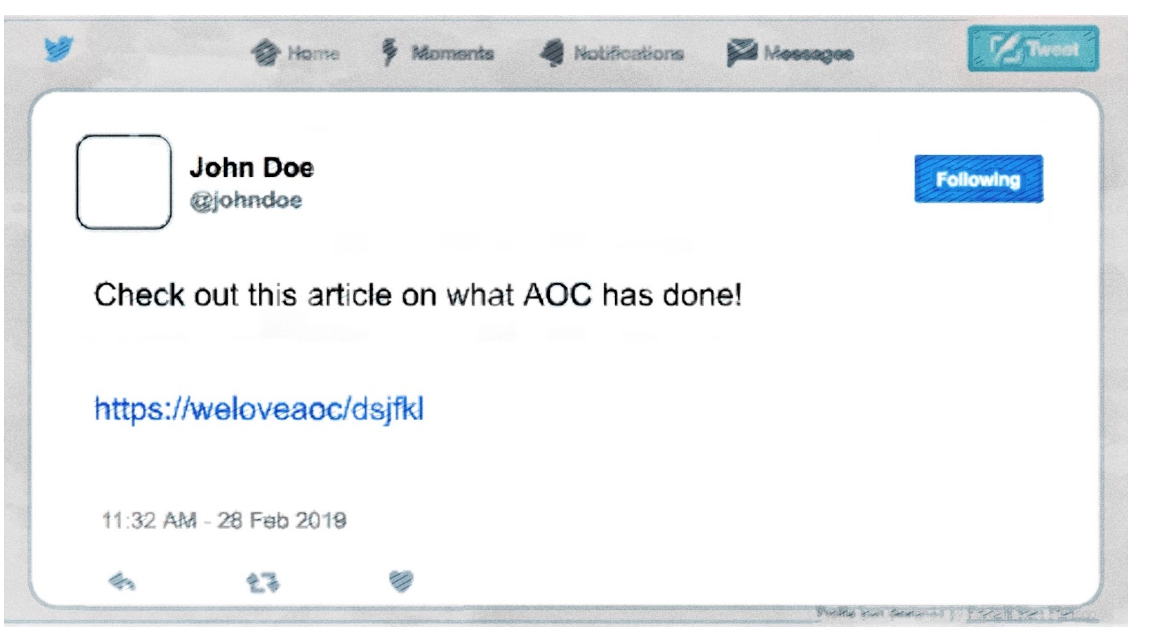The Dangers of Idolizing Politicians
February, 2021
Within the past few years, especially during the Trump administration, many teenagers received their news from social media. Not only is this harmful because of the relevance of misleading and overly-biased information on social media, it also increases the idolization of certain politicians. Idolizing politicians is the act of putting them on a pedestal and neglecting to hold them accountable for their negative actions. PHS is generally left-leaning, which means that many students tend to treat politicians such as Alexandria Ocasio-Cortez and Bernie Sanders as celebrities. When they’re adored by millions of people, it's harder to criticize politicians when necessary.
Many people on social media claim to love AOC, Ayanna Pressley, and other progressive politicians. This is not necessarily bad when a group of women of color inspire many young girls and advocate for social justice. However, do people admire these politicians because they actually believe in and can speak to their policies? Or do they actually believe the sensationalized 30-second clips they see on social media? It’s hard to answer these questions because there will always be evidence of both sides. AOC’s official Instagram account only has 1.3 million followers compared to her personal account with 8.8 million followers, showing that many young Americans prefer to follow her personal life compared to her government role. The huge difference in followers raises questions if people are following her as a politician or as a celebrity: Do they see her as a public official or as someone simply deserving of praise? If they see her political career in its entirety, they would acknowledge claims of her anti-semitism and her ironic sale of $65 sweatshirts printed with the phrase “tax the rich,” rather than obsess over one or two policy points.
Another idolized government figure is late Supreme Court Justice Ruth Bader Ginsburg, who passed away last September. After her death, social media erupted with posts dedicated to memorializing her life; I remember scrolling through identical Instagram stories with pictures of her and texts about how much she has helped our country. RBG is idolized by many because of her relentless fight for women’s rights and gender equality; however, her controversial decisions like clearing the Appalachian trail for a pipeline, despite the protests from environmentalists, are very rarely talked about. And when people do bring up her anti-indigenous rulings, her supporters immediately become defensive and dismissive of the criticisms' validity. Similarly, Obama is heavily idolized as the first Black President and for creating the Affordable Care Act, colloquially known as Obamacare. He has over 34 million followers on Instagram, demonstrating how big his influence is among teenagers. Many news outlets praised his actions as President, sometimes rightfully so, but glossed over the fact that he allowed inhumane drone strikes against the Middle East. Decisions that have severe consequences toward the most vulnerable communities deserve more attention. When these politicians are idolized by so many, people don’t care about their “mistakes” and only focus on their political triumphs. Many young liberals tend to focus on how RBG and Obama were both Democrats and only care about proving some type of Democratic superiority to Republican counterparts.
Everyone knows politicians aren’t perfect, but it is our job as democratically engaged students to hold them accountable for their shortcomings — ultimately, they’re public servants, not our friends. There is a fine line between praising politicians and idolizing them. Idolizing people because they align with your party and your choice of beliefs will benefit no one. These widely distributed Instagram stories use combative language against perceived enemies and glorify progressive politicians, yet the people who post these things refuse to take real action. Performative activism, or activism done to increase one’s social capital rather than because of one’s devotion to a cause, and the idolization of politicians go hand in hand. Many of my peers post about progressive politicians without further reading or understanding their policies to strengthen their own lack of awareness.
Of course, there are people posting on social media who do their research and educate themselves, but there is also a sizable group of people who don’t. They think by reposting the same stories, they don’t have to do any more research. They think that they’re activists, though the distinction between activists and performative activists is quite clear: activists make change, while performative activists pretend to. These performative activists were the same people who posted the black squares for the #BlackoutTuesday and treated Black Lives Matter as a trend. Meanwhile, activists were the ones marching and calling local representatives. Furthermore, these posts were unhelpful for people who needed actual information on Black Lives Matter because the hashtag would be filled with black squares making it impossible to find the information. The people who did post these black squares were typically the same people who put politicians on a pedestal, politicians that they know nothing about and refuse to learn more about. Putting politicians in an untouchable position hinders our ability to criticise them and keep them accountable. While it’s hard to remove this affection, we need to resume our fight for vulnerable communities by holding our favorite politicians accountable. It’s our job as young citizens to make sure that they do their jobs.